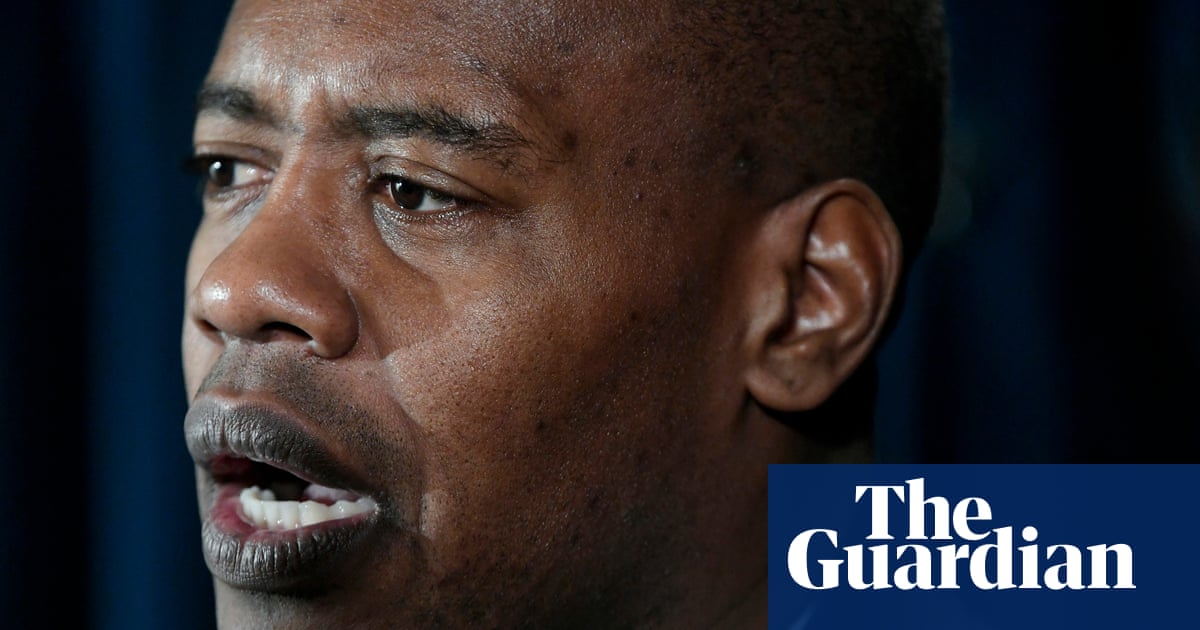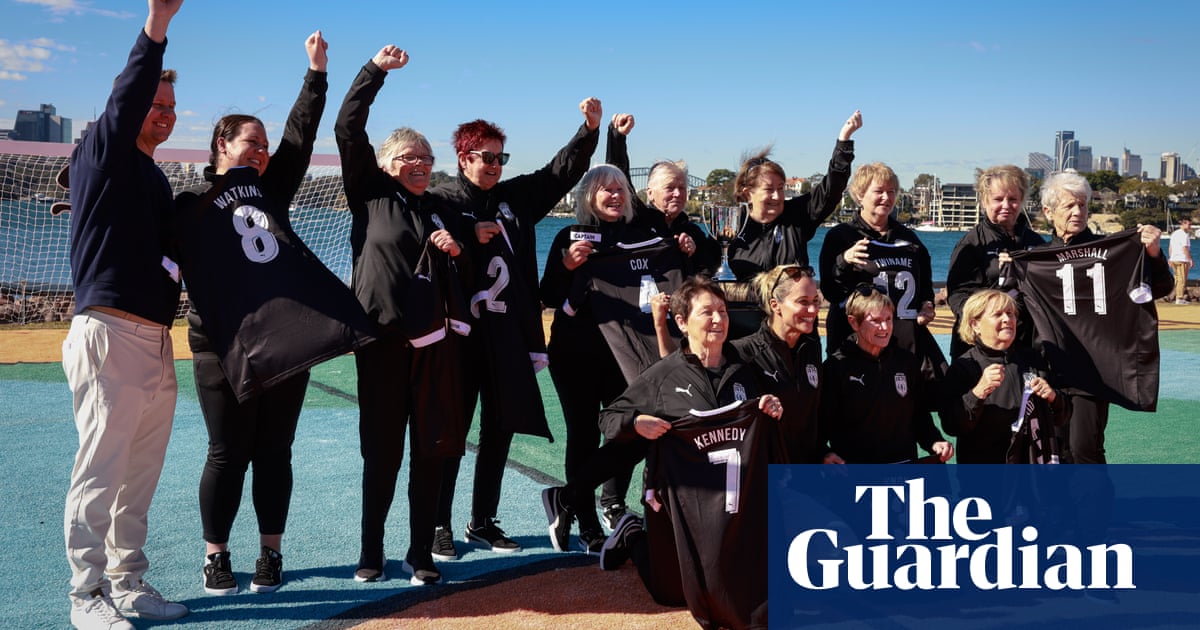
The oil came without warning.
One morning in September 2009 it was there, coating Daniel Sanda’s modest seaweed farm on the Indonesian island of Rote: a dark sheen across the water, waxy yellow-grey blocks floating in the sea.
Within days, the crop his family depended on for its livelihood turned white and died. It has still not fully recovered.
The oil came swiftly, but Sanda’s fight for justice has been grindingly slow.
And he is far from alone. More than a decade after the catastrophic oil spill, thousands of farmers who say they are victims of one of Australia’s worst environmental disasters are still seeking acknowledgment and compensation.
In 2010 an Australian government inquiry found that the Montara oil spill was no misfortune, but the result of corporate neglect: “an accident waiting to happen”.
The commission found that the Australian subsidiary of the Thai oil company PTTEP was negligent in its operation of the Montara oilwell, 250km off the coast of Western Australia, which exploded in August 2009. The federal court would later find that it had spewed more than 2,500 barrels of oil into the Timor Sea every day for 74 days.
The resulting slick killed seaweed crops, destroyed fishing grounds and polluted waters over more than 90,000 sq km, an area larger than Tasmania.
In March 2021, the federal court ordered the Australian subsidiary PTTEP Australasia (PTTEPAA) to pay Sanda a little over A$34,000 in damages.
So far he has not received anything.
In December, the company lodged an appeal, arguing there was insufficient evidence of Montara oil in the coastal areas of Rote and Kupang.
The company and Sanda’s representatives have been ordered to undertake mediation.
Since 2016, Sanda has been the lead plaintiff of a class action, the representative of 15,483 seaweed farmers seeking compensation for lost livelihoods and opportunities.
But there are thousands more outside this group who say they have been affected by the spill – fishers, farmers and families – and who have received no apology or compensation.
Ferdi Tanoni, the chairman of West Timor Care Foundation, says people are still suffering, from islands as far afield as Sabu, East Flores, Lembata and Sumba. The federal court’s decision in Sanda’s case was limited to the regions of Rote and Kupang, and PTTEP denies oil from the spill reached Indonesia.
Tanoni has spent years crisscrossing the islands in the east of the Indonesian archipelago, advocating on behalf of those who claim they were affected.
“It is over 100,000 people who have been affected. In some places, the crops they get are now maybe 10%, 15% of [what they were getting] before [the disaster]. There are many, many schoolchildren who don’t go to school any more because there isn’t any money.
“It’s not like it used to be. It’s a very, very hard life now.”
In December, Tanoni travelled to Jakarta for a meeting of the Montara taskforce, the beginning, he hoped, of potential negotiations over a settlement.
At the last minute, the meeting was postponed; progress stalled again.
Seaweed built houses, met bills
In January 2009, PTTEPAA chose to plug one of four wells in its newly drilled Montara oilfield in the Timor Sea, 700km from Darwin and 240km from the Indonesian island of Rote.
The 2010 inquiry found the job was done carelessly and incompetently: the company did not come “within a ‘bull’s roar’ of sensible oilfield practice”. Three control barriers used to cap the well had not been tested, all were deficient and one had not been properly installed.
“The blowout was not a reflection of one unfortunate incident, or of bad luck. What happened with the H1 Well was an accident waiting to happen; the company’s systems and processes were so deficient and its key personnel so lacking in basic competence, that the blowout can properly be said to have been an event waiting to occur,” the inquiry found.
The blowout sent uncontrolled plumes of oil rushing into the sea. The company claimed the leak was equivalent to 400 barrels of oil a day – the actual figure, the federal court found in its decision in Sanda’s case, was more than 2,500 barrels each day.
By the time the blowout was arrested, after 74 days, oil had spread over more than 90,000 sq km. Eighty-one villages on Rote Island and around the city of Kupang on Timor were hit by the slick.
It was a month after the Montara blowout when the oil arrived in the waters off Rote, late in September 2009 – yellow-grey blocks about the size of golf balls floating in a once-clear sea that was now glossy and dark.
The sea smelled pungently of oil and was filled with dead fish. In three days, Sanda’s seaweed crop turned white and died.
Seaweed farming was a critical industry for thousands in the region.
Since 2000, Indonesia had emerged as the world’s dominant source of raw, dried seaweed, and the eastern islands of the archipelago were a key source.
The industry had proved an economic boon to villages along thousands of kilometres of coastline. Families who had previously eked out a subsistence existence through farming and fishing found economic stability through a growing global demand for their product. Indonesian seaweed was used in food, fertilisers, pharmaceuticals and cosmetics.
More than half the households in the region relied exclusively on seaweed farming for income. Seaweed built houses, met hospital bills, put children through school.
The farmers who gave evidence in Sanda’s case said the oil that arrived after the Montara spill killed it all and that, although now growing again, the seaweed has never fully recovered.
Sanda told the court he had been introduced to seaweed farming by the local bupati – government official – who encouraged him to mark out a plot at Inggurae Beach on Rote Island, growing seaweed from seed on long ropes in the water.
The income he earned paid for Sanda to add brick walls and a kitchen to his home, to buy furniture and a motorbike, and to send his children to university. He donated money to his church. All over his village, families rode the wave of economic development.
“Before the oil came, my seaweed crops were rich and healthy, and the income from seaweed harvesting was good,” Sanda says.
“In 2009, after the oil came, my seaweed became white and weak, then fell down and was washed away by the current.”
‘Accurate and honest accounts’
Justice David Yates of the federal court said Sanda had suffered “a very significant loss” that devastated his income and destroyed his family’s way of life for years.
The company accepted it had been negligent in its operation of the well, but argued the oil lost did not reach Indonesian waters and, if it did, its concentration was not toxic enough to destroy the seaweed crops.
The company also denied it owed a duty of care to the farmers.
Its lawyers argued the farmers’ evidence was unreliable, saying their memories had been contaminated by “consensus” versions of the facts they had discussed with one another.
This was rejected by Yates, who said the seaweed farmers had given “accurate and honest accounts”.
“I am left in no doubt that all witnesses observed a single, strikingly unusual and unique event in that region at that time,” the judge said.
In 2012, PTTEPAA was fined $510,000 in the Darwin local court for breaches of the Offshore Petroleum Act. The company has previously said it has spent more than $40m on the clean-up.
The company conducted a 2013 environmental monitoring survey that found “no oil reached the Indonesian coast”, and that 98.6% of the spilled oil remained within Australian territorial waters. The company was not given permission to survey any Indonesian islands.
PTTEPAA sold Montara in 2018.
A spokesperson for PTTEPAA says the company “remains disappointed” by the federal court’s decision.
The spokesperson says the court’s judgment related only to Sanda’s claim and that the other 15,482 claimants were “statute-barred and must be determined separately”.
“The court’s decision does not negate the requirement for individuals to demonstrate their actual loss and damage,” the company says.
At a court hearing on 21 December lawyers for the farmers said that to individually determine more than 15,000 claims could take “60 years of full-time judicial attention”.
The company’s appeal documents argue, among other things, that the original decision wrongly dismissed or placed insufficient weight on evidence from some experts that said it was likely oil from the Montara spill never reached Sanda’s island.
The company argues the decision in Sanda’s favour was flawed, and that the judge “should have instead found that Sanda failed to prove on the balance of probabilities that Montara oil reached the coastal areas of Rote and Kupang in a sufficient quantity or concentration to cause damage to seaweed crops”.
Lawyers for the company argued before the court that seaweed crops may have been affected by “ice-ice” disease, caused by rising sea temperatures and climate change. The judge said he was “not persuaded” there was evidence to support this.
‘We have to keep going’
Ben Slade, a managing principal at the law firm Maurice Blackburn, has run the class action since 2016.
Slade says the right to exploit natural resources carries with it serious responsibilities, including a duty of care to those affected by careless management of those resources.
“PTTEPAA was supremely careless. Its management of the Montara well didn’t come within a bull’s roar of competence and the consequence of that failure was that almost fifteen and a half thousand seaweed farmers suffered devastating economic loss. The Australian courts have found they should be compensated for that,” he says.
“The company has denied responsibility in the Australian courts aggressively and has resisted every step of the way. It has taken years and years of working tirelessly to get this case towards a conclusion, when we’ve been right all along.”
Emily Mitchell, the research director at Jubilee Australia Research Centre, says tens of thousands more people may have been affected.
“No study has ever been funded by PTTEP Australasia in Indonesia into the impacts of the Montara oil disaster,” she says.
“In East Nusa Tenggara, 12 years after the spill, people still do not have answers about the extent of the damage, let alone how that damage can be fixed. How will the mangroves grow back? How will fish stocks improve? That is completely unacceptable.”
Mitchell says the transnational nature of the oil spill has complicated the effort to hold the company to account.
She says environmental impacts in Prince William Sound, Alaska, were still being felt a quarter of a century after the 1989 Exxon Valdez spill.
“We are now at the halfway point of that timeline, yet there has still never been any comprehensive assessment funded by the company to assess the damage in Indonesia,” she says.
Ferdi Tanoni keeps travelling, keeps talking. He says the company must accept its fault, and that the governments of Australia and Indonesia must “have the courage” to ensure justice is done.
“People keep calling me and I say to them, ‘keep on praying and we will win’. We cannot do anything else. We have to keep going.”












